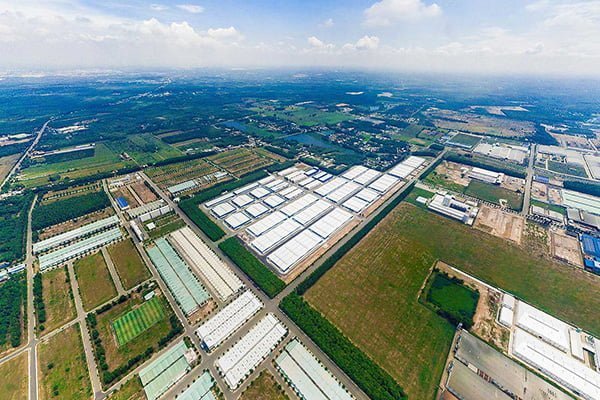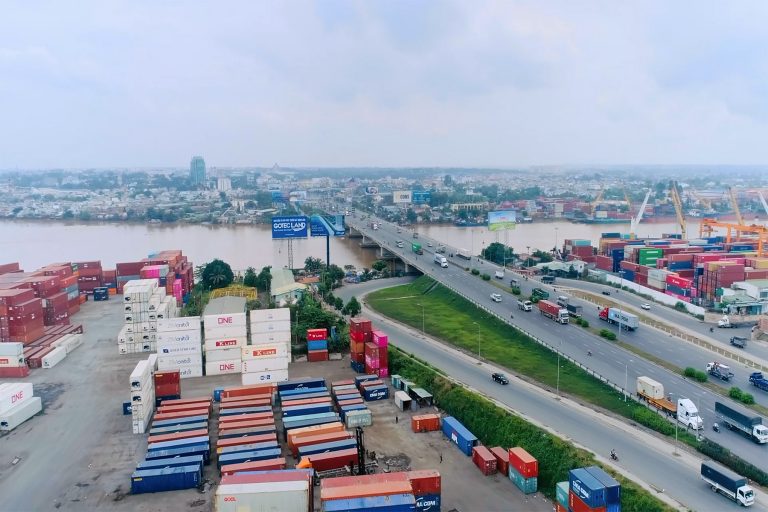[4 min read]
Driven by the lowest rate of car ownership among Southeast Asian peers, the advantages from numerous current and potential free trade agreements, the ongoing US – China trade war and the Government’s success in containing the COVID-19, Vietnam’s automobile industry is expected to expand rapidly.
Opportunities from the domestic market and exports
As reported by Seasia in October 2019, Vietnam is emerging as the auto market with the most potential for growth in the world because its car ownership ratio is only 23 cars per 1,000 people vs 204 units in Thailand, at least 400 units in several developed countries and 790 units in the US.
According to the 2019 Population and Housing Census, Vietnam’s population was approximately 100 million, making it the third most populated country in Southeast Asia (after Indonesia and the Philippines) and the fifteenth most populated country in the world. Notably, the number of Vietnamese middle class citizens is expected to reach 44 million by 2020 and 95 million by 2030. Mr. Do Huu Hao, the Deputy Minister of Industry and Trade and Chairman of the Vietnam Association of Automobile Engineers, has stated that Vietnam’s auto market clearly has a lot of opportunities for development.
Opportunities from trade agreements
The EU-Vietnam Free Trade Agreement (EVFTA) — which came into effect on August 1, 2020 — has brightened the country’s automotive industry outlook.
The ratified EVFTA will help Vietnam reduce the price of imported cars from Europe and provide greater access for car exporters in Vietnam to the European market. Specifically, cars manufactured and assembled in Vietnam can be entitled to an export tax of 0% if they achieve the localization rate as required. In Europe, the number of new car registrations reached more than 15.8 million vehicles in 2019, making it a very attractive market.
Additionally, some domestic businesses have successfully taken advantage of Vietnam being a member of the ASEAN Economic Community to export vehicles to other countries in the region. According to data from the ASEAN Automobile Federation (AAF), this region purchased nearly 3.4 million new cars in 2019.
Effects of US – China trade war and COVID-19
The US automotive industry has been hit hard by the ongoing trade tension. In 2019, China raised tariffs on American-made car exports from 15% to 40% in retaliation for a US tariff hike. Although the majority of Chinese consumers buy cars from domestic brands, US carmakers such as Tesla are facing a lot of pressure to increase car sales in the Chinese market.
China has long been the center of global automotive supply chain, which has resulted in US manufacturers having to spend more on automotive parts from China due to a higher tax rate.
In addition, the COVID-19 has had a serious negative impact on the automotive industry. Prolonged quarantines and supply chain disruptions caused by a multitude production facilities being temporarily shut down have pushed many automakers to shift their production out of China.
Kito — a manufacturer of headlights and taillights for Toyota, Nissan and other major automakers — has a plan to relocate its production to other countries. Kasai Kogyo — a supplier of car seat and accessories for Honda — is also considering shifting its Wuhan assembly line to other sites in North America, Europe and Asia.
Meanwhile, Vietnam has emerged as an ideal destination for automakers because of its geographical location adjacent to China and competitive labor costs. These advantages will help companies reduce their overreliance on China’s supply chain in the near future.



